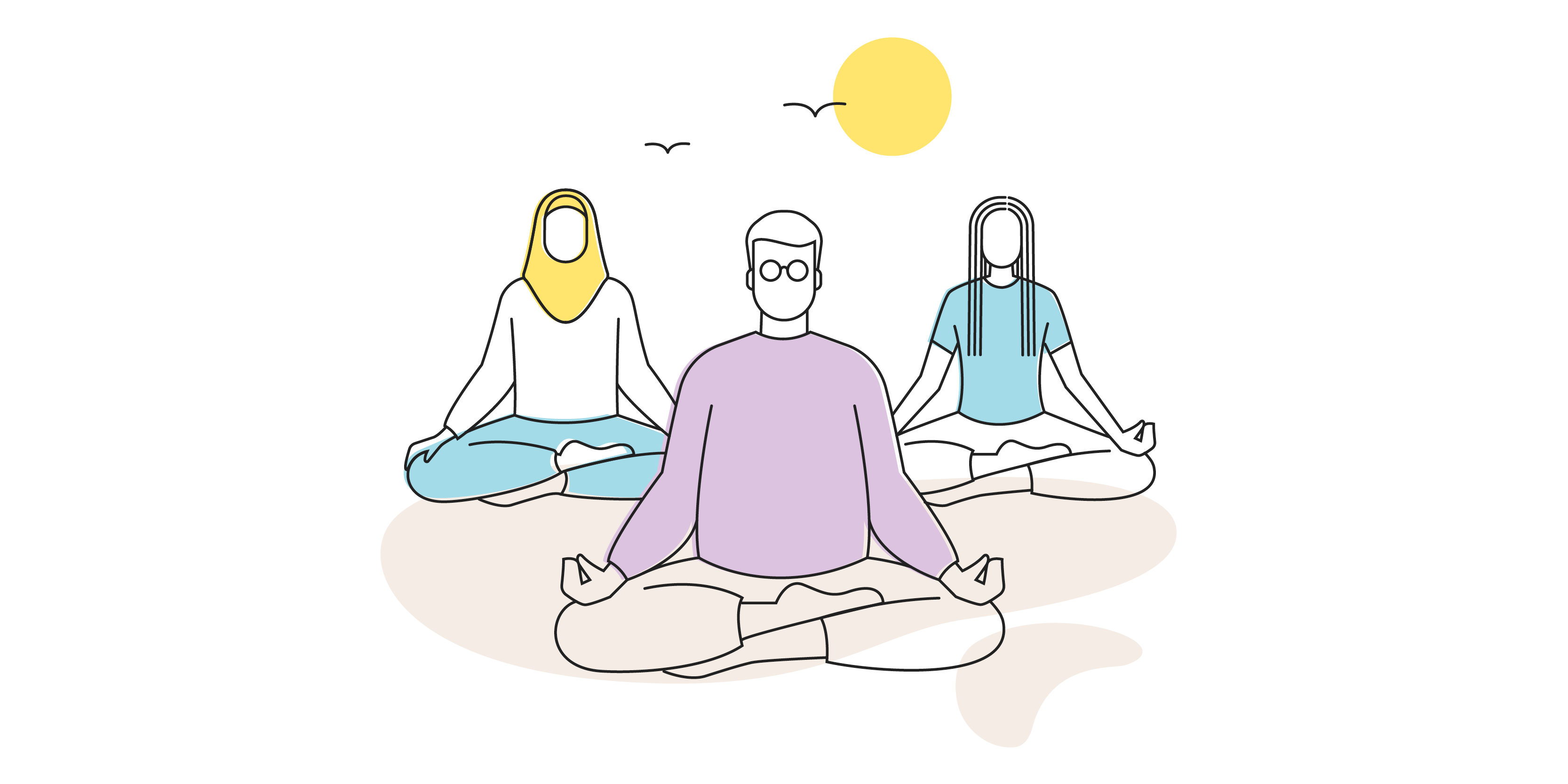Mindfulness

What is mindfulness?
It's easy to stop noticing the world around us and become caught up in our thoughts, without pausing to acknowledge how those thoughts are influencing our feelings and behaviour.
Mindfulness involves paying attention – on purpose - to what we are noticing in the present moment such as our emotions, body sentations and surrounding enviroment. Practicing mindfulness allows us to tune into what we’re sensing in the present moment rather than dwelling on the past or anticipating the future. Mindfulness aims to help you:
- become more self-aware
- feel a sense of calm
- feel more able in how you respond to your thoughts and feelings
- cope with difficult or unhelpful thoughts
- be kinder towards yourself.
How can I practice mindfulness?
There are many, simple ways to introduce mindfulness into your daily life. It may be helpful to try some different techniques to see what works for you:
Daily awareness practices
Pay attention to the sensory experiences of your life. Concentrate on ‘single-tasking’ and engaging yourself as fully as possible to what you’re doing in that moment. The NHS Every Mind Matters and Mind websites provide exercises and tips to try.
Guided meditation
Listen to recordings which take you step-by-step through a mindfulness technique, for example a body scan, breathing exercises, or sitting meditations. Try listening to the Staff Counselling and Psychological Support Service’s programme of Rest, Reset and Resume podcasts and discover how shifting attention, with small mental and physical gestures, we can take a more active position in relation to how we feel.
A word of caution about listening to guided meditations: as mindfulness trains us to pay more attention to our lived experience it can highlight our awareness of stress or difficult experiences. If this is too much for you at any point, please override the meditation and choose to focus on something that feels safe or neutral.
